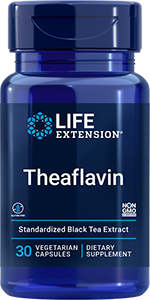 | May 3, 2011 | Study reveals that many Americans are not getting enough calcium | | The May, 2011 issue of the Journal of the American Dietetic Association published the conclusion of researchers at Yale University and the University of Connecticut that many older Americans have an insufficient intake of calcium. Adequate intake of the mineral has been defined by the Institute of Medicine as 1,000 milligrams per day for adults aged 19 to 50 years and 1,200 milligrams per day for those over 50. Jane E. Kerstetter, RD, PhD and her associates analyzed data from 9,475 adults enrolled in the National Health and Nutrition Examination Survey (NHANES) 2003-2006. Dietary interviews ascertained calcium intake from both food and supplements. While total calcium intake increased with age, insufficiency remained prevalent among older adults. Although older individuals consumed more calcium supplements, they tend to eat less, which lowers the amount of calcium intake from food. Median calcium intake from diet was 23 percent lower in men and 14 percent lower in women over 80 compared to the intake of those between the ages of 19 and 30. Half of all participants over the age of 18 reported using calcium supplements, and the number of those supplementing increased with age. Thirty-four percent of men between the ages of 19 and 30 supplemented with the mineral, in contrast with 54 percent of those over 80. Interestingly, the adjusted median calcium intake from food by supplement users of both genders was significantly higher than the intake of those who did not use supplements. "Calcium plays a fundamental role in promoting bone health and forestalling osteoporosis," stated Dr Kerstetter, who is a professor in the University of Connecticut's Department of Allied Health Sciences. "In light of evidence that energy intake declines with aging, calcium dense foods and calcium supplements become vital factors in maintaining adequate calcium intake across the lifespan. Encouraging calcium supplementation is an established approach to addressing this issue in the clinical setting – one that needs additional emphasis in order to promote more frequent and sufficient supplementation in meeting adequate intake levels." "Altering the concentration of calcium in the diet relative to energy by increasing consumption of nutrient dense foods is a new and important concept that also deserves additional consideration as a component of osteoporosis prevention efforts," she added. | |  |
| Calcium and vitamin D are the cornerstone of osteoporosis prevention, yet they are not the whole story. Other minerals and nutrients that are vital to a healthy bone matrix include magnesium, potassium, vitamin C, vitamin K, vitamin B12, and others, including zinc, manganese, boron, copper, and silicon (Nieves JW 2005; Hirota T et al 2005). Many studies have shown that calcium can reduce bone loss and suppress bone turnover. Calcium intake is a foundation of osteoporosis prevention (Kasper DL et al 2005). Calcium requires the presence of vitamin D for maximum absorption. Although calcium is readily available in dairy products and other dietary sources, many Americans are calcium deficient. There are a few possible explanations for calcium deficiencies: - Decreased vitamin D availability, possibly due to kidney or liver problems or insufficient exposure to sunshine (ultraviolet radiation)
- Decreased gastrointestinal tract absorption due to stomach or intestinal problems
- Increased loss of calcium from the kidneys
- Increased loss of calcium from the colon and bowels
- Low dietary calcium intake
- Medications that inhibit calcium absorption
There are many forms of calcium on the market, including the common calcium carbonate, calcium gluconate, and calcium citrate. Of these, calcium citrate is the most easily absorbed and a good way to receive supplemental calcium. It may also turn out that not only is supplementation vital to preventing and treating osteoporosis but that the timing of the supplementation is important. For example, in a study of healthy volunteers, two doses of 500 mg calcium and 400 IU vitamin D taken six hours apart produced a more prolonged decrease in serum parathyroid hormone levels (low levels of which indicate adequate calcium levels) than a single dose with the same total amounts of calcium and vitamin D. |
|  |   |  Theaflavin Standardized Extract contains a number of beneficial flavonoids found naturally in tea leaves that help support levels of cholesterol that are already within the normal range. Theaflavins have been shown in human studies to protect against LDL oxidation and favorably affect endothelial function, thus helping to maintain healthy circulation. Scientists have also found that black tea flavonoids possess strong antioxidant properties, which can help mitigate oxidative damage to cells and tissues from free radicals. In addition, theaflavins have been found to be helpful in regulating key inflammatory mediators in the body, thus helping to preserve cellular integrity. | | | Life Extension Cat Mix  |
Cats are carnivorous. But unlike dogs that can eat some plant-based foods, cats need animal protein to survive. Amino acids like taurine and arginine are important to a cat’s health, and without them cats could die. Taurine, for one, is a must for heart, kidney, and eye health. Arginine detoxifies ammonia in cats’ kidneys and is also important for heart and pancreatic function and keeping the gut healthy. The essential fatty acid, arachidonic acid, is another must for cats; it is used in every cell in the body. And, just like humans, they need B vitamins to support their cardiovascular system. Cats also have problems metabolizing certain amino acids from other nutrients, like the conversion of niacin to tryptophan, or vitamin A from beta carotene. For that reason cats have more stringent nutritional requirements than omnivores such as dogs and humans. | | | |  | Life Extension Update | What's Hot | Life Extension Magazine® | |














